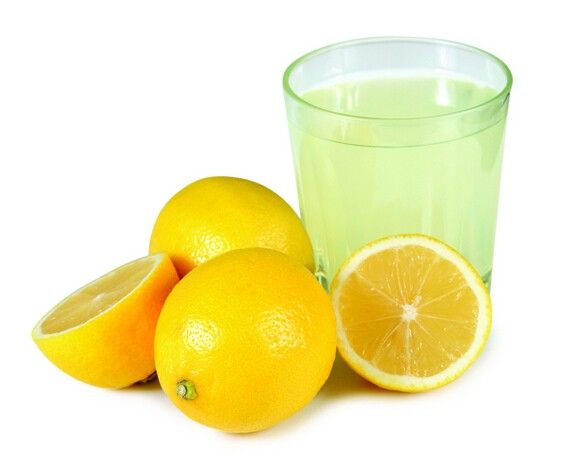Lemon juice, with its tangy taste and refreshing aroma, is not only a versatile ingredient in culinary preparations but also a treasure trove of health benefits. Packed with essential vitamins, minerals, and antioxidants, lemon juice offers numerous advantages for overall well-being. This article will unveil 15 incredible health benefits of lemon juice that will make you appreciate this citrus powerhouse even more.
Nutritional Breakdown of Lemon Juice:
Before diving into the health benefits, let’s take a closer look at the nutritional profile of lemon juice. This citrus fruit is rich in vitamin C, providing a significant portion of the recommended daily intake. Vitamin C is essential for collagen synthesis, immune system function, and wound healing.
Additionally, lemon juice contains other essential vitamins like vitamin B6, vitamin A, and vitamin E, and minerals such as potassium, calcium, and iron. These nutrients contribute to the overall health-boosting properties of lemon juice.

15 Amazing Health Benefits of Lemon Juice
1. Immune System Boost
Lemon juice is renowned for its immune-boosting properties, primarily due to its high vitamin C content. Vitamin C plays a crucial role in supporting immune system function, aiding in the production of white blood cells that defend against pathogens. Incorporating lemon juice into your diet can help strengthen your immune system and protect against common illnesses like colds and flu.
Research has shown that vitamin C can reduce the duration and severity of respiratory tract infections. A study published in the Journal of Manipulative Physiological Therapeutics found that consuming vitamin C-rich foods, like lemon juice, can help prevent and alleviate symptoms of respiratory infections.
To boost your immune system, start your day with a glass of warm lemon water. Squeeze the juice of half a lemon into a glass of warm water and drink it first thing in the morning on an empty stomach. This simple habit can provide a natural immune system boost and set the tone for a healthy day.
2. Digestive Health Enhancer
Lemon juice has long been used as a natural digestive aid. The citric acid present in lemon juice stimulates the production of digestive enzymes, promoting efficient digestion and preventing issues such as bloating and indigestion.
Lemon juice can increase the production of bile, a substance that aids in fat digestion. This can be particularly beneficial for individuals who struggle with fat absorption or have conditions that impair bile production, such as gallbladder disease.
The presence of flavonoids in lemon juice also helps relax the muscles of the digestive tract, reducing the risk of spasms and facilitating smooth digestion.
If you’re experiencing digestive discomfort after a heavy meal, a simple solution is to add a few drops of lemon juice to a glass of warm water and drink it slowly. The soothing properties of lemon juice can alleviate indigestion and promote overall digestive wellness.
3. Skin Health and Lemon Juice
Thanks to its antioxidant properties, lemon juice can contribute to healthy, radiant skin. Antioxidants combat free radicals, which can cause premature aging and damage to the skin cells. Lemon juice contains vitamin C and other antioxidants that help neutralize free radicals and reduce oxidative stress.
Vitamin C is essential for collagen synthesis, a protein that provides structure and elasticity to the skin. Consuming lemon juice can support collagen production, helping to maintain youthful-looking skin and reduce the appearance of wrinkles and fine lines.
In addition to consuming lemon juice, you can also use it topically to reap its skin benefits. However, it is essential to dilute lemon juice before applying it to the skin to prevent irritation.
Mix equal parts lemon juice and water, and use a cotton ball to apply the mixture to your face or areas of concern. Leave it on for a few minutes and rinse thoroughly with water. This natural remedy can help reduce blemishes, brighten the complexion, and improve overall skin texture.
4. Lemon Juice for Hydration
Staying hydrated is crucial for optimum health, and lemon juice can make your hydration routine even more enjoyable. Adding a squeeze of lemon juice to a glass of water not only enhances the flavor but also provides a refreshing twist. Lemon juice-infused water can encourage regular hydration, making it easier to meet daily fluid intake requirements.
Drinking enough water is essential for maintaining healthy bodily functions, including digestion, circulation, and temperature regulation. However, some individuals find plain water boring or struggle to consume enough throughout the day. Adding lemon juice to water can make it more appealing and enjoyable, encouraging increased water intake.
To make lemon-infused water, simply squeeze the juice of half a lemon into a glass of water and stir. You can also add a few slices of lemon for extra flavor. Sip on this revitalizing beverage throughout the day to stay hydrated and reap the additional benefits of lemon juice.

5. Detoxification with Lemon Juice
Lemon juice has often been associated with detoxification and cleansing benefits. While there is limited scientific evidence to support its direct detoxifying effects, lemon juice can indirectly support the body’s natural detoxification processes. The antioxidants in lemon juice help neutralize toxins and promote liver function, aiding in the removal of harmful substances from the body.
The liver is responsible for filtering toxins and waste products from the blood. It produces bile, which helps break down fats and eliminate toxins through the digestive system. Lemon juice can stimulate the liver’s detoxification enzymes, supporting its optimal function.
To enhance the detoxifying effects of lemon juice, consider incorporating it into a cleansing routine. You can start your day with warm lemon water, followed by a healthy, nutrient-dense diet and regular exercise. This holistic approach can help support your body’s natural detoxification processes and promote overall well-being.
6. Weight Management and Lemon Juice
If you’re on a weight management journey, lemon juice can be a valuable addition to your routine. The pectin fiber found in lemons can help curb appetite and promote feelings of fullness, potentially aiding weight loss efforts. Additionally, the low-calorie content of lemon juice makes it a healthier alternative to sugary beverages.
Research has shown that dietary fiber can play a role in weight management by increasing satiety and reducing overall calorie intake. Pectin, the soluble fiber found in lemons, forms a gel-like substance in the stomach, which slows down the emptying of the stomach and contributes to feelings of fullness.
Incorporating lemon juice into your meals and beverages can be a simple yet effective way to support weight management. Use lemon juice as a healthy salad dressing, add it to your morning smoothie, or squeeze it over grilled vegetables for a burst of flavor.
By substituting sugary drinks with lemon-infused water or herbal lemon tea, you can reduce your calorie intake and make healthier choices.
7. Cardiovascular Health
Lemon juice can contribute to heart health in several ways. The vitamin C and antioxidants in lemon juice help reduce oxidative stress and inflammation, both of which are associated with an increased risk of cardiovascular diseases. Some studies have also suggested that lemon juice may help lower cholesterol levels, further supporting heart health.
Research has shown that the antioxidants in lemon juice can help reduce the oxidation of LDL (low-density lipoprotein) cholesterol, often referred to as “bad” cholesterol. Oxidized LDL cholesterol is more likely to build up in the arteries, leading to plaque formation and increasing the risk of heart disease.
To support cardiovascular health, incorporate lemon juice into your diet as part of a balanced, heart-healthy eating plan. Enjoy a glass of lemon water in the morning, squeeze lemon juice over salads and grilled fish, or use it as a natural flavor enhancer in your cooking. These simple additions can contribute to a healthier heart.
8. Lemon Juice for Blood Sugar Regulation
Keeping blood sugar levels within a healthy range is essential, especially for individuals with diabetes or prediabetes. While lemon juice alone cannot replace proper medical management, it may have some beneficial effects on blood sugar levels. The soluble fiber in lemons can help slow down the absorption of sugars, potentially preventing spikes in blood glucose levels.
Research has shown that dietary fiber, including soluble fiber found in lemons, can help regulate blood sugar levels and improve insulin sensitivity. Soluble fiber forms a gel-like substance in the digestive tract, which slows down the breakdown and absorption of carbohydrates. This can help prevent rapid increases in blood sugar after meals.
If you have diabetes or prediabetes, it’s important to work closely with your healthcare team to manage your blood sugar levels. Incorporating lemon juice into your diet, along with a balanced meal plan and regular physical activity, can be part of a comprehensive approach to blood sugar control.

9. Alkalizing Effects of Lemon Juice
Although lemons are acidic in nature, they have an alkalizing effect on the body when metabolized. This means that despite their initial acidity, lemons can help balance the body’s pH levels, which is important for overall health. A balanced pH can support optimal cellular function and may have a positive impact on conditions like acid reflux and heartburn.
The body has a natural pH balance that is slightly alkaline, with a range of 7.35 to 7.45. When the body becomes too acidic, it can disrupt various physiological processes and contribute to health issues. The alkalizing effect of lemon juice helps counteract excessive acidity and restore a healthy pH balance.
To enjoy the alkalizing effects of lemon juice, incorporate it into your diet by squeezing it over salads, adding it to marinades, or using it in homemade salad dressings. Consuming lemon juice alongside alkaline-rich foods, such as leafy greens and other vegetables, can further support pH balance.
10. Anticancer Properties
Lemon juice contains flavonoids, which have been associated with potential anticancer properties. These compounds have shown promising results in inhibiting the growth of cancer cells and reducing the risk of certain types of cancer. However, it’s important to note that lemon juice alone cannot prevent or cure cancer, and further research is needed in this area.
The flavonoids found in lemons, such as hesperidin and naringenin, have demonstrated anti-inflammatory and antioxidant effects in preclinical studies. These effects may help protect against DNA damage, reduce the growth of cancer cells, and inhibit tumor formation.
While lemon juice may have some potential benefits in cancer prevention, it is essential to prioritize a well-rounded approach to cancer risk reduction. This includes maintaining a healthy lifestyle, consuming a variety of fruits and vegetables, engaging in regular physical activity, and following appropriate screening guidelines as recommended by healthcare professionals.
11. Strengthening Bones with Lemon Juice
Lemon juice is a good source of calcium, which is vital for maintaining strong and healthy bones. Calcium, along with vitamin C, helps promote bone density and prevent conditions like osteoporosis. Incorporating lemon juice into your diet, along with other calcium-rich foods, can contribute to optimal bone health.
Calcium is the main mineral component of bones, providing strength and structure. Inadequate calcium intake can lead to weakened bones and an increased risk of fractures. Vitamin C plays a role in collagen synthesis, which is essential for the formation and maintenance of healthy bones.
To ensure you’re getting enough calcium from lemon juice, incorporate it into your diet along with other calcium-rich foods such as dairy products, leafy greens, and fortified plant-based milk alternatives. Consider adding lemon juice to smoothies, using it as a marinade for fish or poultry, or squeezing it over steamed vegetables to enhance calcium absorption.
12. Oral Health and Lemon Juice
Lemon juice’s antibacterial properties can be beneficial for oral health. It can help kill harmful bacteria in the mouth and freshen your breath. However, it is important to note that the acidity of lemon juice can erode tooth enamel. To protect your teeth, it is recommended to dilute lemon juice with water and rinse your mouth thoroughly afterward.
Bacteria in the mouth can contribute to various oral health issues, including bad breath, tooth decay, and gum disease. The antibacterial properties of lemon juice can help reduce the levels of these harmful bacteria, promoting a healthier oral environment.
To freshen your breath and support oral health, mix equal parts lemon juice and water and use it as a natural mouthwash. Swish the mixture around your mouth for about 30 seconds and then spit it out. This simple practice can help kill bacteria and leave your breath feeling refreshed.
13. Kidney Stone Prevention
Citric acid, found abundantly in lemon juice, may help prevent the formation of certain types of kidney stones. Citric acid can increase urine volume and pH, making it more difficult for kidney stones to form.
A study published in the Journal of Urology found that lemon juice can significantly increase urinary citrate levels. This can inhibit the formation of calcium oxalate stones, the most common type of kidney stone.
To harness the potential benefits of lemon juice in preventing kidney stones, you can incorporate it into your daily routine. Squeeze fresh lemon juice into a glass of water and drink it regularly.
Aim for a daily intake of ½ to ¾ cup of lemon juice diluted in water. However, it’s important to consult with a healthcare professional if you have a history of kidney stones or any underlying kidney conditions.
14. Enhancing Mental Health
The vitamin C content in lemon juice has been linked to better mental health. Vitamin C is involved in the production of neurotransmitters like serotonin, which plays a crucial role in mood regulation. Consuming lemon juice can support overall mental well-being and potentially alleviate symptoms of stress and anxiety.
Several studies have suggested a connection between vitamin C deficiency and an increased risk of mental health disorders, such as depression and anxiety. Vitamin C acts as an antioxidant in the brain, protecting against oxidative stress and inflammation, which are implicated in mental health disorders.
Incorporating lemon juice into your diet can be a simple and delicious way to support mental health. Start your day with a glass of lemon water or include lemon juice in your meals and beverages. The refreshing flavor of lemon can provide a mood-boosting effect and contribute to overall mental well-being.
15. Improved Respiratory Function
Lemon juice can provide relief for respiratory conditions like coughs and colds. Its vitamin C content helps strengthen the immune system, while its antibacterial properties can help fight respiratory infections. Adding lemon juice to warm water with honey can soothe sore throats and ease congestion.
Respiratory infections, such as the common cold and flu, can cause discomfort and disrupt daily life. Lemon juice can help alleviate symptoms and support respiratory health due to its immune-boosting properties.
To soothe a sore throat and relieve congestion, mix the juice of half a lemon with warm water and add a teaspoon of honey. Sip on this soothing concoction to ease throat irritation and promote respiratory comfort. The combination of vitamin C, warm water, and honey can help thin mucus and reduce inflammation in the respiratory tract.
How much lemon juice is safe to consume daily?
It is generally safe to consume the juice of one lemon per day, which is approximately 2-3 tablespoons. However, it’s important to listen to your body and consult with a healthcare professional if you have any specific concerns or medical conditions.
Is bottled lemon juice as beneficial as fresh lemon juice?
Fresh lemon juice is generally preferred over bottled lemon juice, as it retains more of its natural nutrients and flavor. Bottled lemon juice may contain added preservatives or lack the freshness and potency of freshly squeezed lemons. Whenever possible, opt for fresh lemons to maximize the health benefits of lemon juice.
Potential Side Effects of Drinking Lemon Juice
While lemon juice offers many health benefits, it’s essential to be aware of potential side effects, especially when consumed in excess. Here are some considerations:
1. Tooth Enamel Erosion: Lemon juice is highly acidic, which means that consuming it in large quantities or frequently can erode tooth enamel over time. This can lead to tooth sensitivity, discoloration, and an increased risk of cavities.
2. Gastroesophageal Reflux Disease (GERD): If you have GERD or are prone to acid reflux, the high acidity of lemon juice may exacerbate symptoms. The citric acid in lemons can trigger heartburn and discomfort in individuals with a sensitive digestive system.
3. Skin Sensitivity: While lemon juice can be beneficial for skin health when used properly, it can also cause skin sensitivity, especially in individuals with sensitive or dry skin. Undiluted lemon juice applied topically can lead to irritation, redness, or even chemical burns.
4. Interaction with Medications: Lemon juice may interact with certain medications, affecting their efficacy or increasing the risk of side effects. It’s particularly important to be cautious if you take medications that are sensitive to acidity or interact with citrus fruits.
5. Allergic Reactions: While relatively rare, some individuals may be allergic to lemons or have a sensitivity to citrus fruits. Allergic reactions can range from mild symptoms like itching or hives to more severe reactions that require immediate medical attention.
Conclusion
Lemon juice is not only a flavorful addition to culinary creations but also a natural powerhouse of health benefits. It’s important to note that the side effects mentioned above are typically associated with excessive consumption or misuse of lemon juice. When consumed in moderate amounts and as part of a balanced diet, the potential benefits of lemon juice often outweigh the risks.






